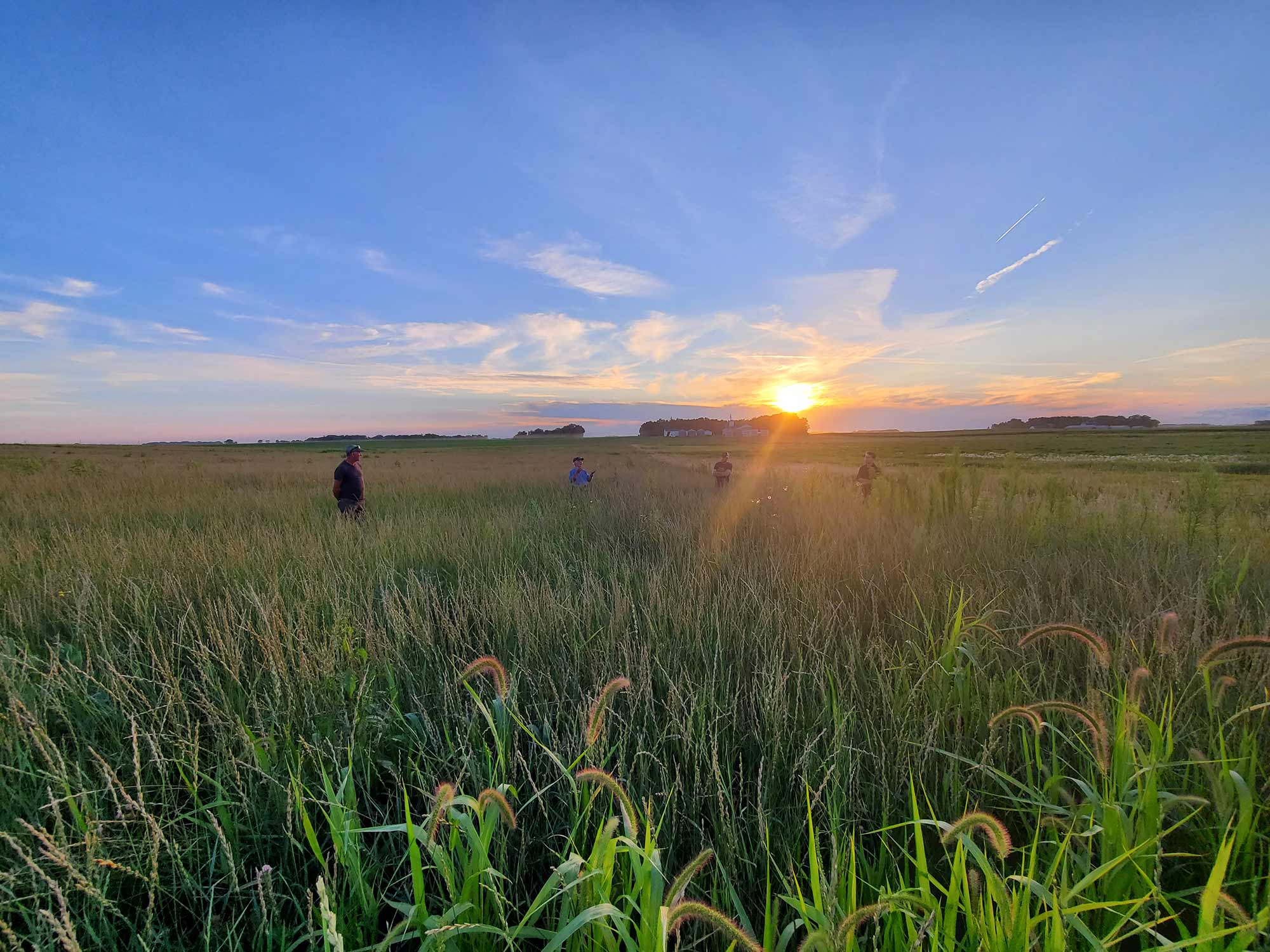Stories & Videos
The benefits of restored oxbows

Historically, Iowa was a mosaic of prairie potholes, wetlands, and meandering streams. However today less than 1% of those wetlands remain, resulting in an immense loss of water storage and wildlife habitat across the Iowa landscape. The need for improved floodplain hydrology and increased water storage became increasingly apparent during the extreme weather events and flooding many parts of Iowa experienced this spring.
Oxbows are one example of a wetland feature that has greatly diminished over the years. Oxbows are old stream meanders cut off from the current stream channel, forming a small floodplain wetland that connects to the stream only during high flows. Healthy oxbows can provide many benefits including wildlife habitat, water quality improvements, and flood-water storage. However, over time many of Iowa’s oxbows have filled in with excess soil due to high rates of soil erosion across the landscape, and the benefits that they once provided diminish. By excavating the excess sediment, we can restore the oxbow’s benefits providing more storage for excess floodwaters, improved nutrient cycling and sustaining water year-round for fish and wildlife populations to thrive. The Nature Conservancy, along with partners, have been monitoring the benefits restored oxbows provide over the last 5 years, and here’s what we’ve found:
On average, restored oxbows can remove 47% of the nitrates (NO3-N) that enter the oxbow through tile water, groundwater, and creek flooding. NO3-N reductions can be up to 100% when dry weather allows tile water to sit in the oxbow for longer periods of time. On average, it takes the oxbow about 25 days to remove excess NO3-N from tile water.
Surveys found 30 fish species and 54 bird species utilizing restored oxbow habitat year-round. This includes the state and federally endangered Topeka shiner, a minnow which requires the off-stream habitat as refuge from predatory fish.
Currently, 23 oxbows have been restored in the Boone River Watershed, but hundreds more potential restorations exist. TNC and partners can offer up to 100% cost share to restore additional oxbows in the Boone River Watershed.
If you’d like to learn more contact Karen Wilke at kwilke@tnc.org or 480-678-2352.
— Story by Karen Wilke, The Nature Conservancy in Iowa
This material is based upon work supported by the Natural Resources Conservation Service, U.S. Department of Agriculture, under number 69-6114-14-008. Any opinions, findings, conclusions, or recommendations expressed in this publication are those of the author and do not necessarily reflect the views of the U.S. Department of the Agriculture.

